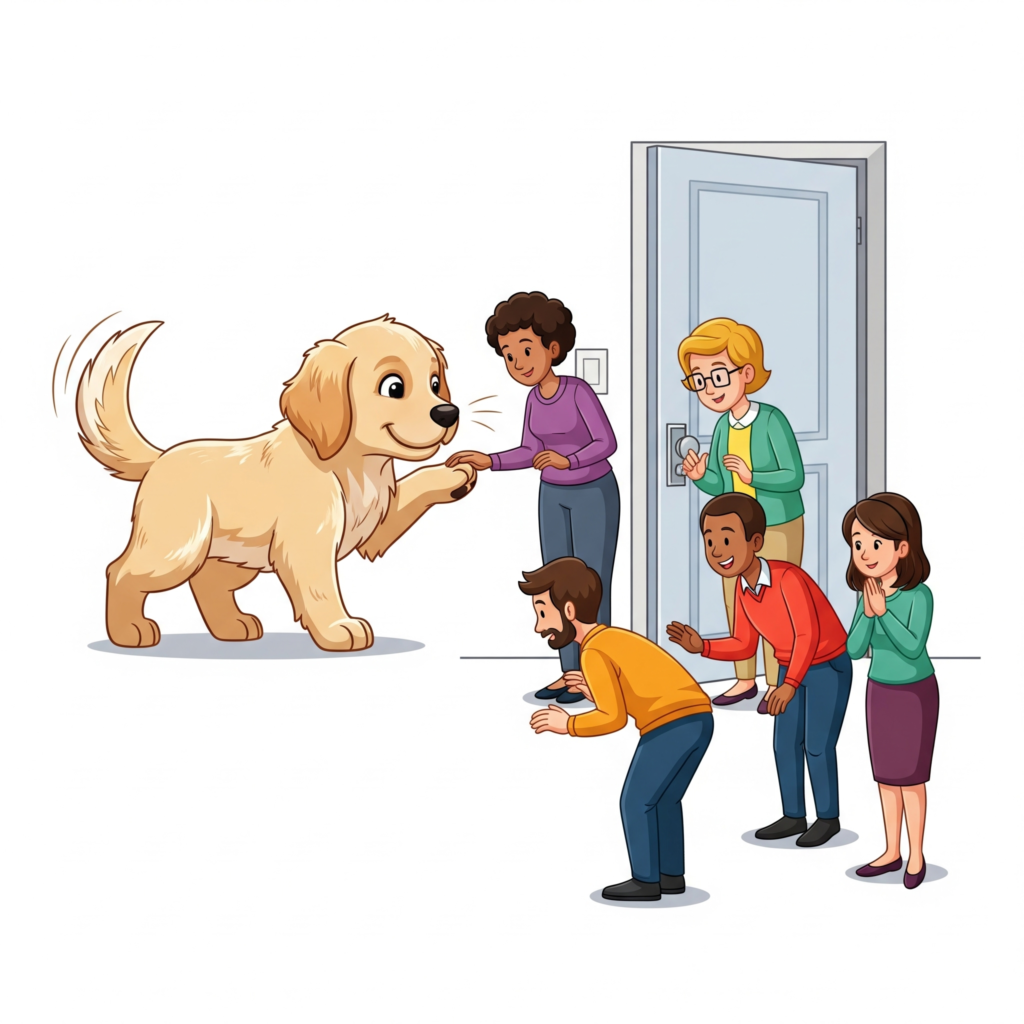
Bringing a new puppy into your home means lots of love, training, and new experiences—including meeting your friends and family. While it’s exciting to show off your adorable new companion, it’s important to introduce visitors in a calm and thoughtful way to avoid overwhelming your puppy. The right approach builds your puppy’s confidence and teaches them how to handle new social situations with ease.
Start with Familiar Scents
Before inviting someone over, try introducing your puppy to your visitor’s scent. Ask the person to bring or send an item of clothing or fabric that carries their scent. Let your puppy sniff it in a calm setting. This small step helps your puppy feel less surprised when the person appears in real life.
Set the Tone Before the Visit
Make sure your puppy has had a chance to eat, go potty, and burn off some energy with a walk or short play session. A tired puppy is more likely to stay calm during introductions. Avoid overstimulating activities right before your guest arrives.
Use a Calm and Controlled Environment
Keep the environment relaxed when someone arrives. Turn off loud music or background noise. Ask your visitor to stay calm and quiet—no high-pitched voices or quick movements. Sit them down and allow your puppy to approach at their own pace.
Let Your Puppy Lead the Introduction
Don’t force your puppy to be held or petted right away. Give them the space to explore, sniff, and retreat if they feel unsure. This natural approach helps your puppy learn that new people aren’t a threat and that social interactions can be positive.
Have Treats Ready for Positive Reinforcement
Use treats to create positive associations. If your puppy calmly approaches the guest or sits nearby, reward them with praise and a small treat. You can also let the guest offer the treat, but only if your puppy is ready and comfortable.
Limit the Number of Visitors
If your puppy is still adjusting to new environments, avoid hosting large gatherings. One or two guests at a time is plenty. A crowded home can easily overwhelm a young puppy, leading to stress or fear-based behaviors.
Create a Safe Retreat Space
Give your puppy a quiet area they can escape to if they feel overstimulated. This could be their crate, bed, or a calm room with their toys. Teach your guests not to follow the puppy into this space—it’s a comfort zone, not a timeout.
Watch for Body Language Cues
Learn to recognize signs of stress like yawning, lip licking, hiding, tail tucking, or excessive barking. If your puppy seems uneasy, pause the interaction and give them some quiet time. Respecting your puppy’s comfort level is essential for healthy social development.
Keep Visits Short in the Beginning
Limit initial visits to 15–30 minutes. Short, positive interactions are better than long, stressful ones. As your puppy gains confidence, you can gradually increase the duration and complexity of social encounters.
Stay Consistent
The more often your puppy has calm, positive experiences with new people, the more confident they will become. Make gentle introductions part of your regular routine and involve different ages, voices, and movements to help your puppy generalize the experience.
Conclusion
Introducing your puppy to visitors at home should always prioritize their comfort and emotional safety. By setting the right tone and pacing, you’re teaching your puppy that new people are friendly, not scary. With patience and consistency, your puppy will grow into a well-adjusted dog that welcomes guests with ease.
Want more guidance on daily puppy socialization or house training routines? Visit PetsDogPuppy for expert tips and step-by-step advice for every stage of your puppy’s development.
